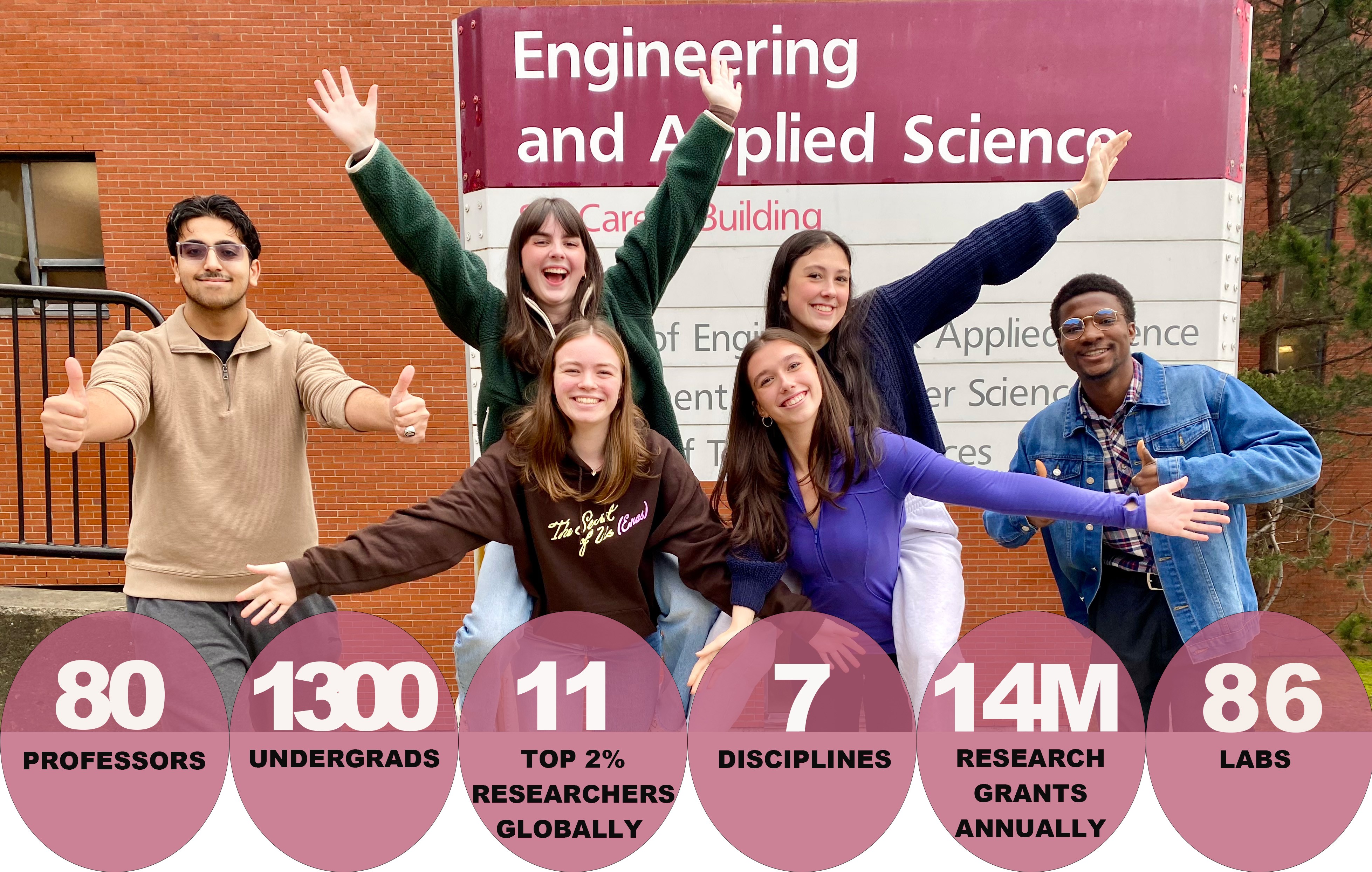Let us help you build a brighter future

Memorial Engineering is one of the top engineering faculties in the Atlantic provinces, with over 50 years of academic excellence and a strong reputation for producing industry-ready graduates. Our accredited programs, cutting-edge facilities, and dedicated faculty provide students with the knowledge and skills to succeed in the rapidly evolving field of engineering.
A key highlight of our program is our well-established co-op opportunity, one of the best in the region. Through strong industry partnerships, students gain invaluable hands-on experience, bridging the gap between classroom learning and real-world application. This gives our graduates a competitive edge in the job market and sets them up for long-term career success.
 |  |
|---|
Our world-class faculty members, many of whom are leaders in their fields, are dedicated to delivering an engaging, rigorous, and supportive learning experience. With more than five decades of excellence, we continue to evolve and maintain our position as a leader in engineering education in the Atlantic provinces.
As an accredited institution with a proud 50-year legacy, Memorial Engineering is committed to providing top-tier education that meets the highest industry standards.
 |  |
|---|---|
 |  |
Join us at Memorial Engineering and become part of a community that values knowledge, fosters innovation, and is committed to making a positive impact on the world. With a rich history, top-tier programs, and a focus on real-world experience, Memorial Engineering is the perfect place to launch your engineering career.
 |  |
|---|

